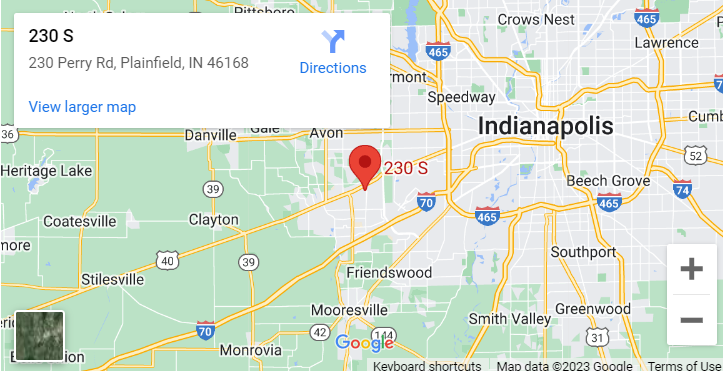Introduction
Ransomware is a growing problem, with more and more businesses falling victim. And while cybercriminals want to make money off their malware attacks, they also know that people may not be willing or able to pay the ransom.
The good news is that there are steps you can take if you’re hit by ransomware: law enforcement officials can help, and there are tools available that can help prevent an attack or stop an active one.
But how do you know whether it’s worth paying up? In this article, we’ll discuss the pros and cons of paying ransoms—and why more organizations than ever before choose not to pay.
If you’re a victim of a ransomware attack, paying the ransom may not be the best course of action. Here are the pros and cons.
If you’re a victim of a ransomware attack, paying the ransom may not be the best course of action. Here are the pros and cons.
Pros:
- You don’t lose anything (at least for now). Once you pay, your files will be decrypted and returned to normal.
- The criminals behind most ransomware attacks do not appear to target individuals or businesses that can’t afford to pay the ransom requested by them. So if you have enough money to pay the ransom amount, you should be safe from further damage done by these cybercriminals.
- Paying off hackers who use malicious software like Ransomware is becoming increasingly common practice among companies due to its success rate in getting back all data lost due to such attacks.[1]
Not paying could cost more
Ransomware is a big threat, and paying the ransom may be the best option in some situations. But there are a lot of factors to consider before you decide whether or not to pay.
Cons:
- What’s your data worth? What will it cost you if you don’t get your data back? If your business can’t recover from a ransomware attack and has to close down, that could mean losing jobs and incurring other costs related to rebuilding the business or relocating employees (including those whose salaries are paid by government grants). In any case, there will probably be substantial losses in revenue until you can get back up and running again. And if you don’t pay up, even just once—or twice—the price tag for recovery could go up astronomically over time as hackers become more aggressive about asking for more money every time they lock down another computer.
It can be expensive
It can be expensive.
The cost of ransomware can be high, and the price of recovering data can be even higher. If you have to pay a ransom, the cost will usually mean the loss of productivity and reputation for your business. It’s often less expensive to pay for an antivirus solution that protects against these kinds of attacks than it is to recover from them later on—especially if you’re dealing with sensitive information such as healthcare records or social security numbers.
Law enforcement can help
There is a chance that law enforcement can help, especially if the ransomware was not able to encrypt your files.
- Law enforcement can investigate and track down the criminals behind the attack.
- They may be able to recover any data that was not encrypted by using forensic methods and other tools.
- They may be able to remove malware from your system and prevent future attacks on your computer or network.
You’ll draw attention from cybercriminals
There are several reasons you should avoid paying the ransom. First and foremost, it’s unlikely that your files are going to be decrypted. One study found that only 5% of victims who paid the ransom got their files back. In other words, if you’re unlucky enough to fall victim to ransomware, there’s a 95% chance that paying will leave you with nothing but an empty wallet and a new set of problems to deal with.
Another reason not to pay is because it will draw attention from cybercriminals. If they know they can get money out of you by setting up another attack on your system or network, they’ll do just that—and chances are good that next time around, you won’t have time or resources left over for encryption services like CryptoMove (which doesn’t guarantee success anyway). An even worse scenario is when these criminals target family members or friends in order to pressure them into giving up access codes or account information needed for payment processing; this could cause major harm both physically and financially!
The FBI doesn’t want you to pay
The FBI doesn’t want you to pay a ransom. This common misconception is based on the FBI’s long-standing policy of not paying ransoms, which was put in place after 9/11. The agency has been very vocal about this stance, saying that “the ransomware payments are absolutely not worth it.”
But the truth is that while the FBI does have a policy against paying ransoms and has even arrested hackers for doing so, they don’t necessarily discourage people from making those payments either—and for good reason: doing so can be beneficial for your safety and security.
Paying doesn’t guarantee file recovery
While paying the ransom may seem like a good idea, it’s not guaranteed that you will get your files back. If a ransomware attack was designed to prevent decryption, then paying the ransom won’t help you recover your files at all. Some ransomware uses multiple encryption methods and some use multiple keys and algorithms. The only way to be sure is if there is a decryption method available for your specific strain of malware; otherwise, there is nothing else that can be done except wait for someone else to crack it or try again later when other hackers release new versions of their software that might have better success in unlocking encrypted data from infected machines.
Encryption gets better every day
Encryption is getting better every day, and it’s not just the criminals that are driving this trend. The best of the best in the tech industry are working hard to make encryption more secure, making it harder for hackers and ransomware writers to break their systems.
Newer ransomware will continue to be a threat for some time, but as we see with new technology advances like quantum computing and quantum cryptography, there is always another level of sophistication that can be reached.
Ransomware payment is tricky, and more organizations are choosing not to pay.
Ransomware is a growing problem, with cybercriminals increasingly using it as their tool of choice. In fact, ransomware is one of the most profitable types of cybercrime, and attacks are on the rise. The sophistication levels of these attacks are also increasing.
There’s no denying that paying a ransom provides some immediate relief to an organization after they’ve been hit by an attack; however, paying can come at a price—and not just monetary! Depending on what you’re willing to pay and how much time you have left before your data is destroyed or encrypted again, there may be better options available than simply writing out a check for criminals’ demands.
Conclusion
The FBI doesn’t want you to pay, but the truth is that if the choice is between hiring a professional and paying the ransom, it might be worth considering. Depending on how much data you have to lose, paying may be your best option.



